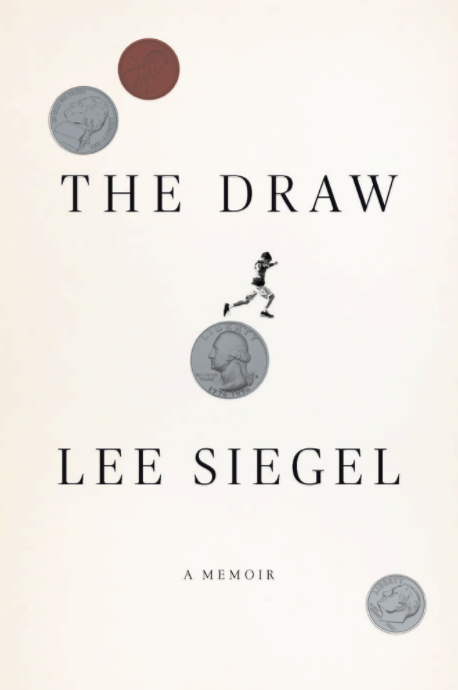
In the mid-1970s, Lee Siegel’s father, Monroe, a former jazz pianist, was working for a realty company that had him on a draw, an advance that he had to pay back out of future commissions. When the recession hit, Monroe found himself owing $50,000 to his firm, which is equivalent to about $300,000 today. The sheriff had come to Lee’s house to serve a legal notice of debt to his father, and not long after that Lee’s mother, Lola, decided to divorce Monroe. Rachmones means mercy in Yiddish.
After the sheriff’s visit to our house, my father announced to my mother his plans to use some legal maneuver that he might well have imagined to take out a second mortgage on the house. This way, he explained, he could fulfill his obligation to Albatross Realty, his former company, and get out from underneath the debt that was crippling them. They might, he added, even have some money left over to take a vacation, or buy a new car for my mother.
This was too much for my mother to tolerate. Thanks to my father’s run of good luck when the real estate market was booming, they were only a few years away from paying off their original mortgage. Taking out a second mortgage would rob them of equity that would be available to them in their retirement. It would endanger them for a second time, placing a sword over their heads much like the Draw.
But my father was insistent, exuberantly making his case. He was itching for a second chance. It was several years since he had replaced his beloved Buick Electra with a new model. The sleeves on his suits were beginning to shine with wear. His shoes were buck ling in at the toe.
It wasn’t just the pressures of his past and an escapist imagination that were driving him toward yet another disastrous decision. The artist in him, the pianist and the uncompleted painter, needed freedom from restraint. His human wealth required just enough money to remove the encumbrances on his spirit. Out of the welter of self-destructive impulses came these healthy promptings that he could not have been aware of or able to put into words, but that were as much a part of him as his guilt and self-doubt.
He possessed another superlative quality, too. He was kind. Other men, the men he had worked with in real estate, got rewarded for their coldheartedness, and often for their dishonesty, while he, Monroe Siegel, who had never hurt and would never hurt anyone, had to groan and stumble through life simply because he could not operate at a similar distance from his feelings. Did not kindness deserve an income?
After several months of tense calm, during which my father continued to sleep in the den, his new plans pushed their marriage into its terminal phase. This time there was no hushed whispering in what was now my mother’s bedroom, followed by her screams and my father’s retreat. The fighting occurred all over the house, at all times of night and day.
The last thing my father wanted to happen was my mother leaving him. For all his excitement about his idea, a few days, or even a few hours of objection from my mother would have convinced him to back down. Amid my mother’s yelling, my brother and I could hear him saying, Maybe you’re right, and, We could wait a while if you want. He was clearly about to reverse himself. But whenever he seemed to yield, my mother escalated her attacks on him.
She was not going to let the opportunity pass. The very fact of him wanting to take out a second mortgage was the proof of my father’s detachment from reality that she needed in order to finally say goodbye to him. Her nerves had rejected him a long time ago, then her flesh. But her conscience needed something more solid.
She instinctively knew that she required an error of judgment so plainly rooted in my father’s character that she could console herself with it in times of regret, or on those occasions when someone lifted a reproachful eyebrow as if to say, “You reap what you sow.” Most of all, she had to have irrefutable proof of my father’s lack of responsibility to his family so that she could present it to her father Menka, whose opposition to her divorce from my father must have reminded her of his opposition to her desire to become an actress.
For those reasons, my father’s openness to her objections incited her to greater fury. She was not going to permit him to escape back into the marriage by complying with what she wanted. What she wanted was no longer anything that he could give her.
In my mother’s eyes, the qualities that he thought warranted a dispensation from the world’s hard consequences—the qualities that once assured her they would have a future together—were the gates of hell. Behind my father’s kindness, she saw denial, weakness, selfishness, and vanity. His plea for her to have rachmones she regarded as a challenge to her existence, a death threat. Once he left their bed, everything was over. His sojourn in the den was her Purgatory.
Or so I imagine.
Excerpted from THE DRAW by Lee Siegel. Published by Farrar, Straus and Giroux. Copyright © 2017 by Lee Siegel. All rights reserved.
More Must-Reads from TIME
- Cybersecurity Experts Are Sounding the Alarm on DOGE
- Meet the 2025 Women of the Year
- The Harsh Truth About Disability Inclusion
- Why Do More Young Adults Have Cancer?
- Colman Domingo Leads With Radical Love
- How to Get Better at Doing Things Alone
- Michelle Zauner Stares Down the Darkness
Contact us at letters@time.com